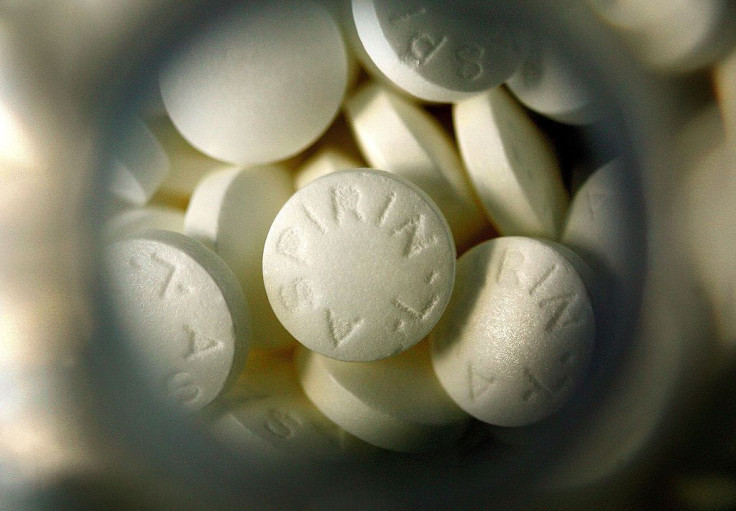Aspirin Is The Best Thing You Can Take After A Mini Stroke, Study Says; Reduces Future Risk By Up To 80%

For centuries people have taken aspirin to relieve nagging headaches. Beyond that, studies suggest the painkiller can offer several other health benefits, including protection from cardiovascular disease and cancer. Doctors also use it to treat patients who've suffered a transient ischemic attack, also known as a mini stroke. Now, new research published in The Lancet suggests patients who pop the pills before doctors tell them to may maximize health effects.
Minor strokes differ from the major types of strokes, ischemic or hemorrhagic, because blood flow to the brain is blocked for only a short period of time — usually no more than five minutes, according to the Centers for Disease Control and Prevention (CDC). In addition to being a medical emergency, they also serve as a warning sign of a future stroke. This is alarming since strokes are the fifth leading cause of death in the U.S., killing about one person every four minutes in the U.S., the CDC said.
Interested to see if taking aspirin immediately after a mini stroke could reduce the risk of a second, more severe stroke, European researchers combed through data from about 16,000 people already enrolled in 12 trials examining the effectiveness of aspirin for long-term prevention of a further stroke. They also analyzed data from about 40,000 people in three trials looking at aspirin as potential treatment for acute stroke.
The risk of suffering a major stroke is highest after a transient ischemic attack; however, this risk is only elevated for a few days. In that time, researchers found that aspirin can substantially reduce the risk of suffering a subsequent stroke by about 70 to 80 percent. This is a considerable increase from the 15 percent reduced risk prior studies have found.
“Our findings confirm the effectiveness of urgent treatment after transient ischemic attack and minor stroke — and show that aspirin is the most important component,” lead researcher Peter Rothwell said in a statement. “Immediate treatment with aspirin can substantially reduce the risk and severity of early recurrent stroke. This finding has implications for doctors, who should give aspirin immediately if a transient ischemic attack or minor stroke is suspected, rather than waiting for specialist assessment and investigations.”
About 10 to 15 percent of people who suffer from minor strokes go on to have an actual one within three months. Previous studies have also shown that minor strokes can lower a person’s life expectancy, perhaps due to the fact patients don't seek medical attention, Rothwell said; if they do, they wait a few days. And half of recurrent strokes among mini stroke sufferers are a result of this course of action.
Rothwell concluded: "Encouraging people to take aspirin if they think they may have had a minor stroke — experiencing sudden-onset unfamiliar neurological symptoms — could help to address this situation, particularly if urgent medical help is unavailable.”
Source: Hankey G. The Benefits of Aspirin in Early Secondary Stroke Prevention. The Lancet. 2016.



























